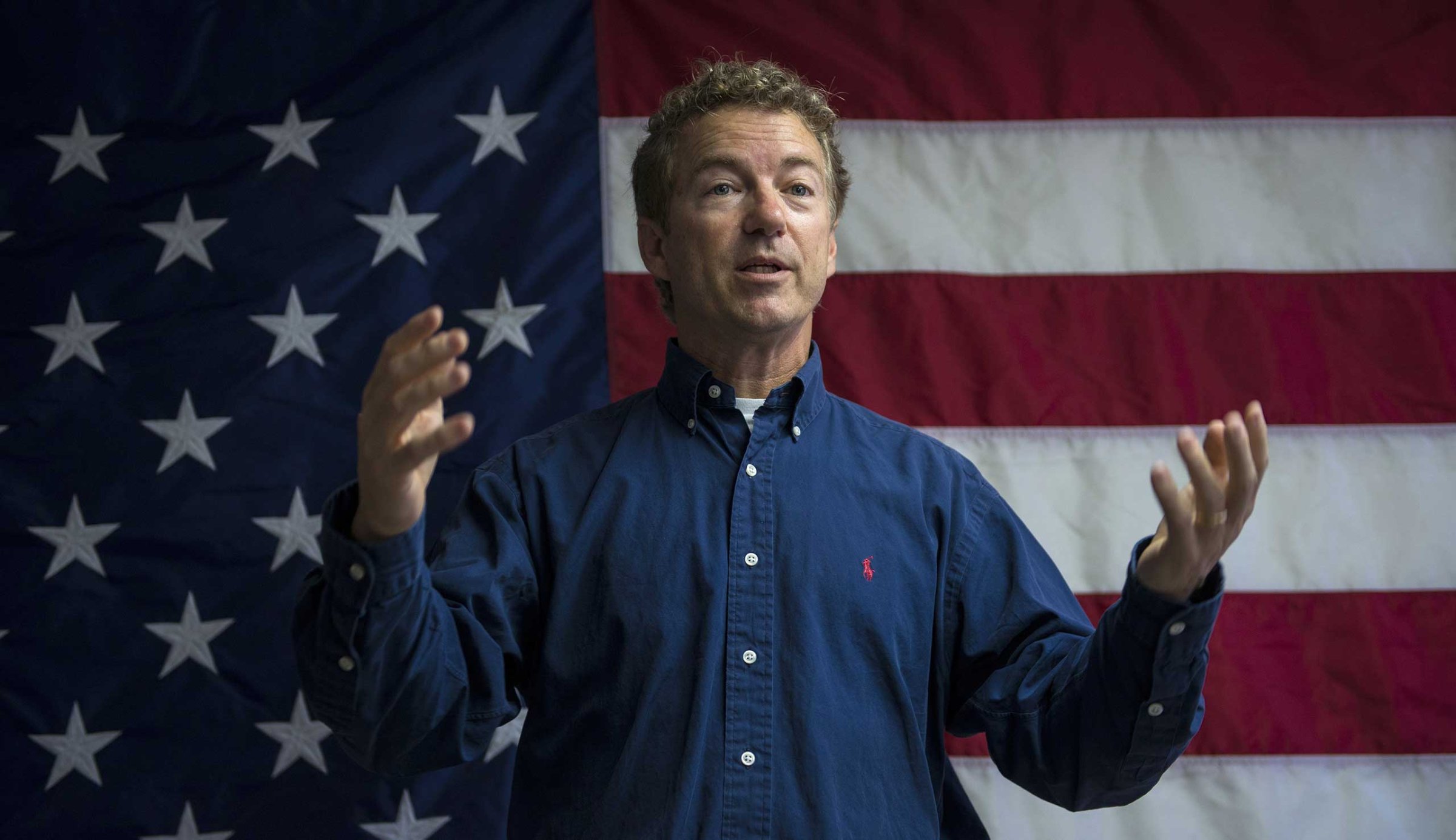
Rand Paul has been a bad, bad boy. Just ask him. “I’m not very popular in Washington right now” was his opening line at a series of town-hall meetings in New Hampshire, two weeks after he had filibustered and, temporarily, crashed the bulk collection of phone data by the federal government. “I messed up their Memorial Day plans.” The line drew laughter and applause in the great state of New Hampshire, a flinty and skeptical province. Anything that gums up the federal machine is a good thing, it seems, even if it involves national security. “One of my colleagues asked, ‘What do we do if the authority to collect data lapses?'” he continued. “I told him, ‘Well, we could rely on the Constitution for a few hours.'”
More applause–but weaker this time. This was relatively esoteric stuff, and Paul had to explain himself: He’s in favor of using search warrants to collect the phone data of suspected terrorists, just not bulk collection of all the phone records of all the people, which he believes is unconstitutional under the Fourth Amendment of the Bill of Rights, which prohibits unreasonable search and seizure. He goes all the way back to the colonial lawyer James Otis, who fought unwarranted search procedures by the British. His audiences stay with him as he explains all this. He speaks plainly and well, without bombast or frills. He knows his stuff. But this is not the sort of thing Republican audiences expect from their candidates. It’s more educational than emotional. He doesn’t speak in any detail about Obamacare, immigration, Iran, abortion or gay rights.
By the time his 15-minute stump speech is over, he has delivered a tutorial about the First, Second, Fourth, Fifth, Sixth, Ninth and 10th amendments to the Constitution. “We Republicans won’t be successful as a party,” he says, “until we support the entire Bill of Rights as enthusiastically as we support the Second Amendment”–that is, the right to bear arms.
Rand Paul has a following in the GOP, just as his father Ron Paul did. But he’s a far more interesting candidate. Paul the Elder had cranky tendencies, railing against the Federal Reserve and in favor of hard currency. Paul the Younger has softer edges; he is an ideologue, but a supple and eclectic one–he talks about things his father never did, and his party doesn’t much, like the justice system in poor black neighborhoods (Sixth Amendment: right to a trial by jury). He tells his Republican audiences the outrageous story of Kalief Browder, a black teenager who was arrested in New York City for allegedly stealing a backpack–he claimed he was innocent, refused to plea-bargain–and spent 1,000 days in jail awaiting trial. Browder committed suicide in early June. “No wonder people in those neighborhoods are pretty angry,” he says.
Paul drives his fellow Republicans crazy with his foreign policy views, which are the opposite of the frothing militarism of the John McCain wing of the party. He’s not an isolationist, but not exactly a “realist” either. “We should arm the Kurds,” he told me, sipping water at a diner in Derry. “They’re about the only ones who are really fighting ISIS.” I pointed out that the Egyptians were fighting ISIS too, in Libya and Sinai. He considered this for a moment, then said, “Yeah, but they put thousands of people in jail for dissent.” It was a purist answer: he wasn’t ready to support an oppressive state, even if it was fighting on our side against a mortal enemy.
The current conventional wisdom is that Paul doesn’t have much of a chance to win the nomination–even though, according to a recent poll, he runs stronger against Hillary Clinton than any other Republican does. But his message is fresh and consequential. It throws a klieg light on the deficiencies of the two major parties: the mindless Republican war-silliness and the utter failure of the Democratic welfare state to alleviate intergenerational poverty. “I was on the South Side of Chicago a few weeks ago,” he said. “And the people there know the current system isn’t working. They’re about ready to try something new.”
But what? His “solutions”–like lower taxes on businesses in poor neighborhoods–are insufficient, and his libertarianism doesn’t begin to address the deficit of individual responsibility that plagues our communities, poor and rich alike. I’d love to hear what he has to say about what democracy demands from its citizens. Still, he is attempting something that few candidates will risk–an intelligent conversation, on issues that really matter. I’m thrilled he’s in the race.
Photos: On the Road with Rand Paul
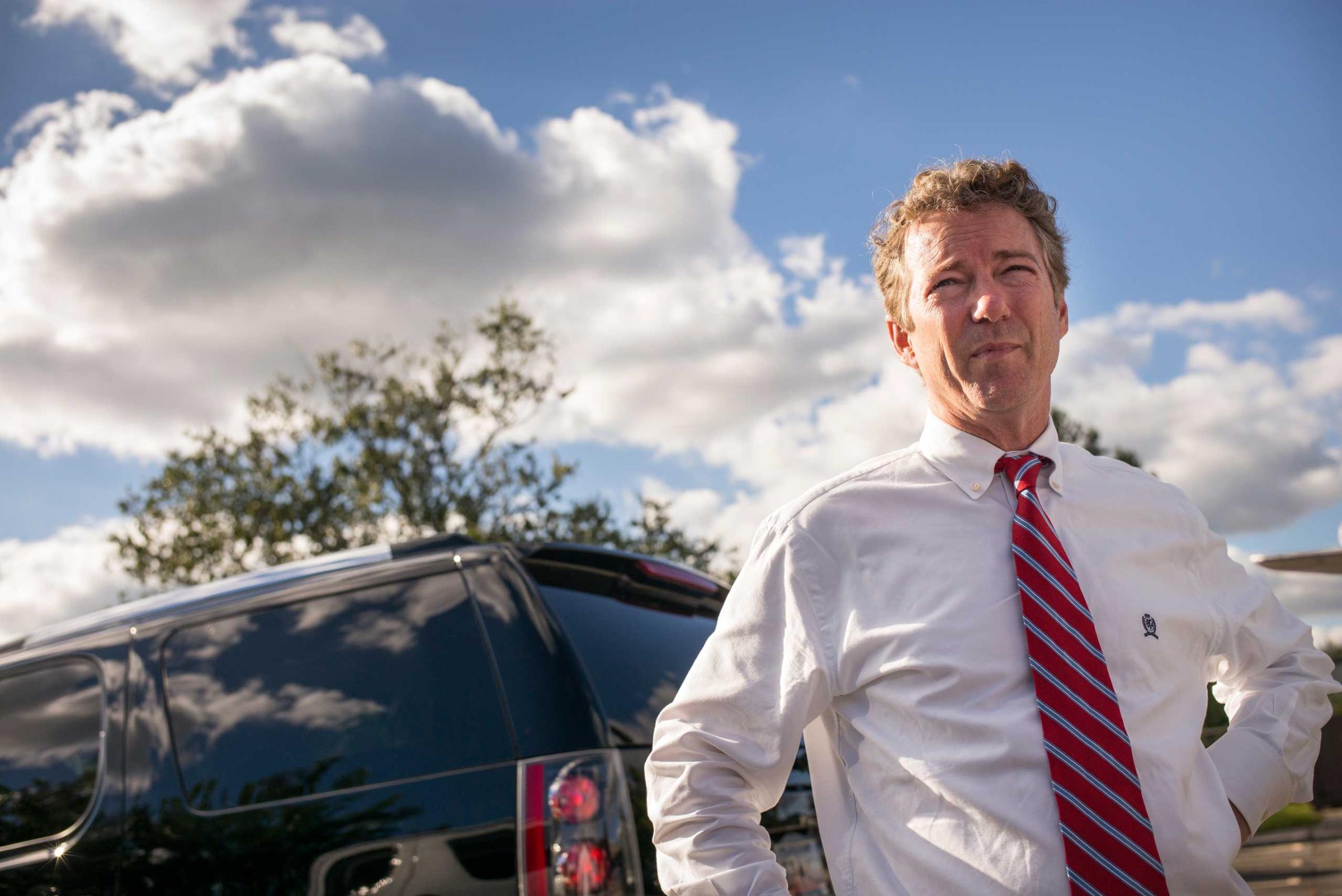
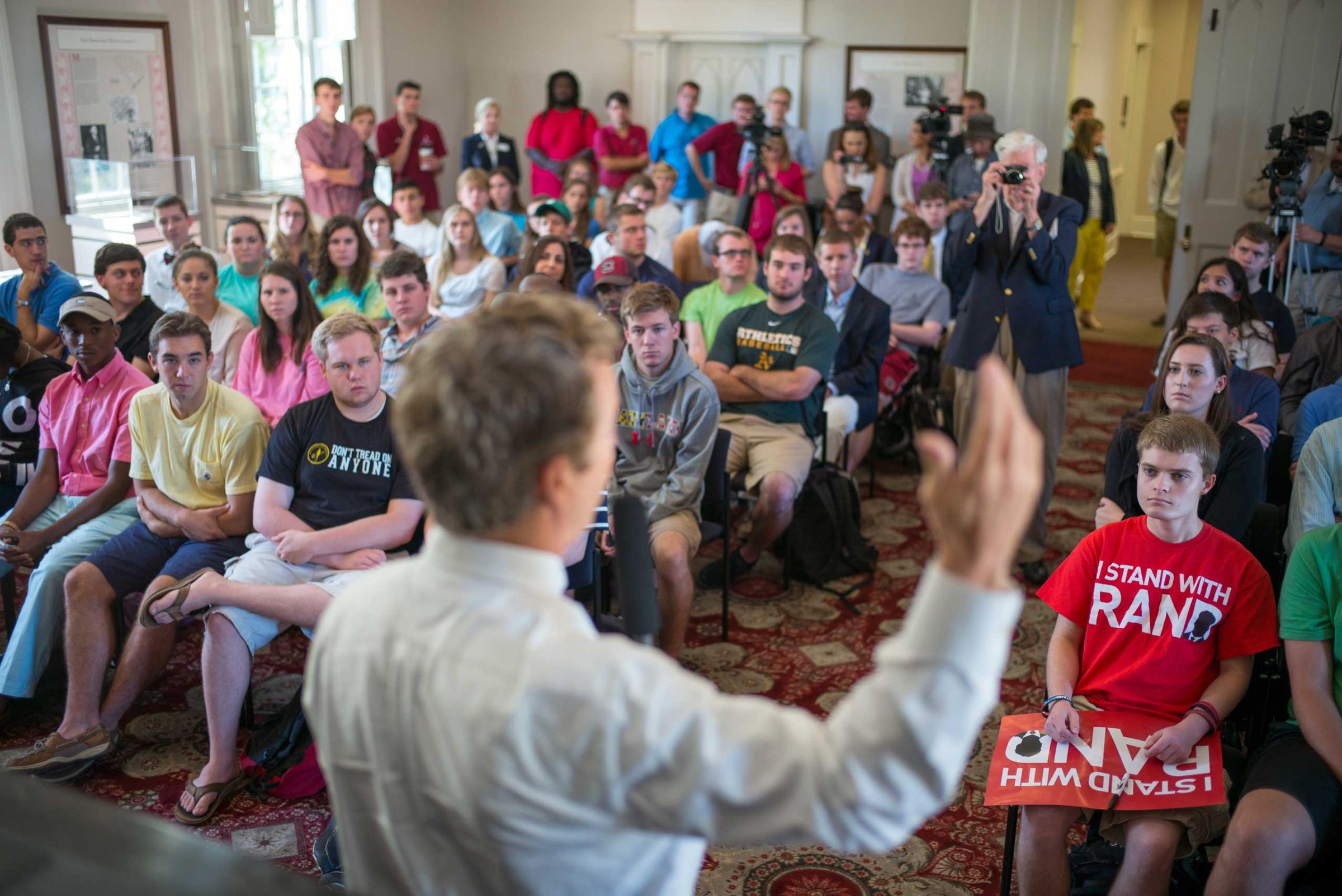

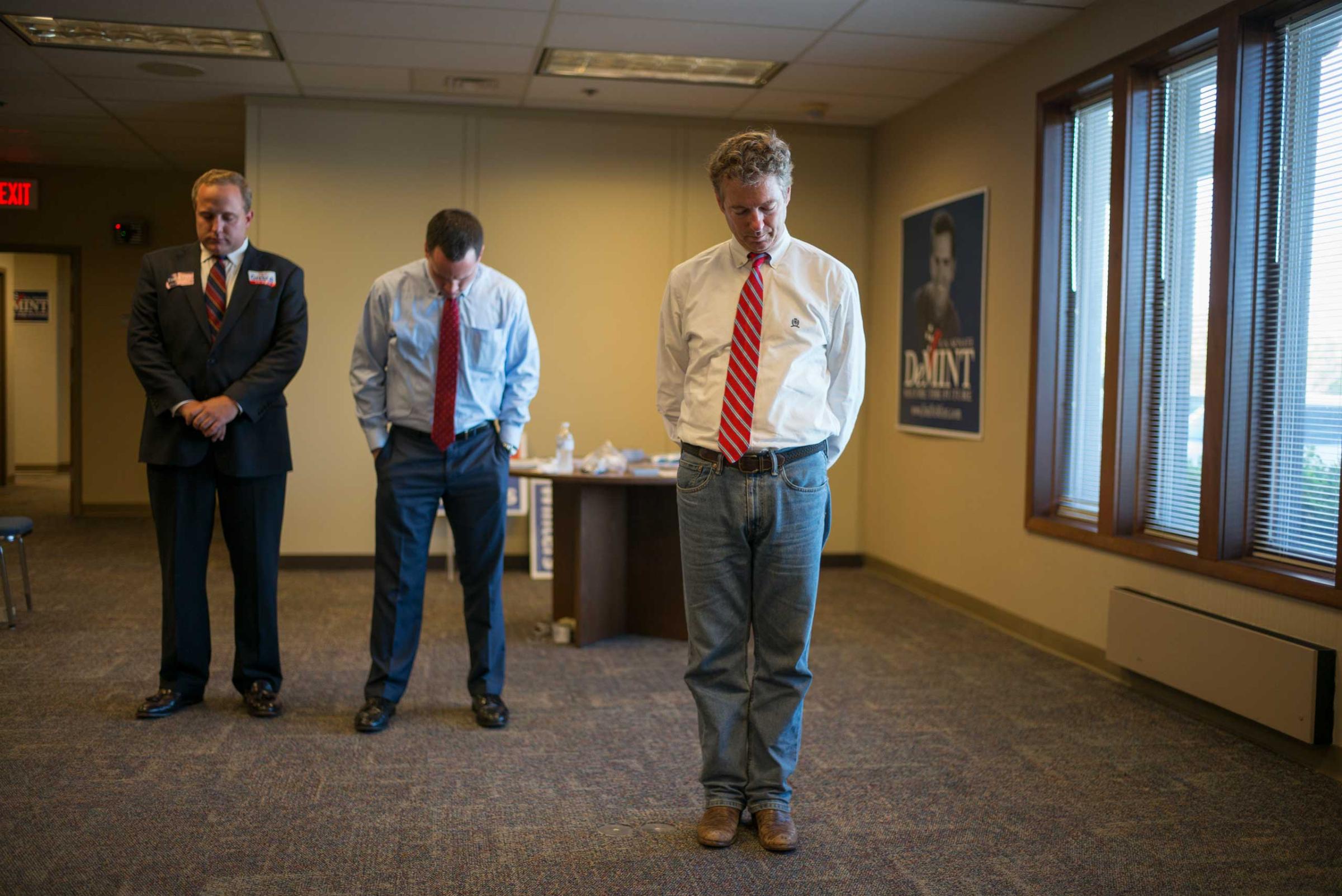
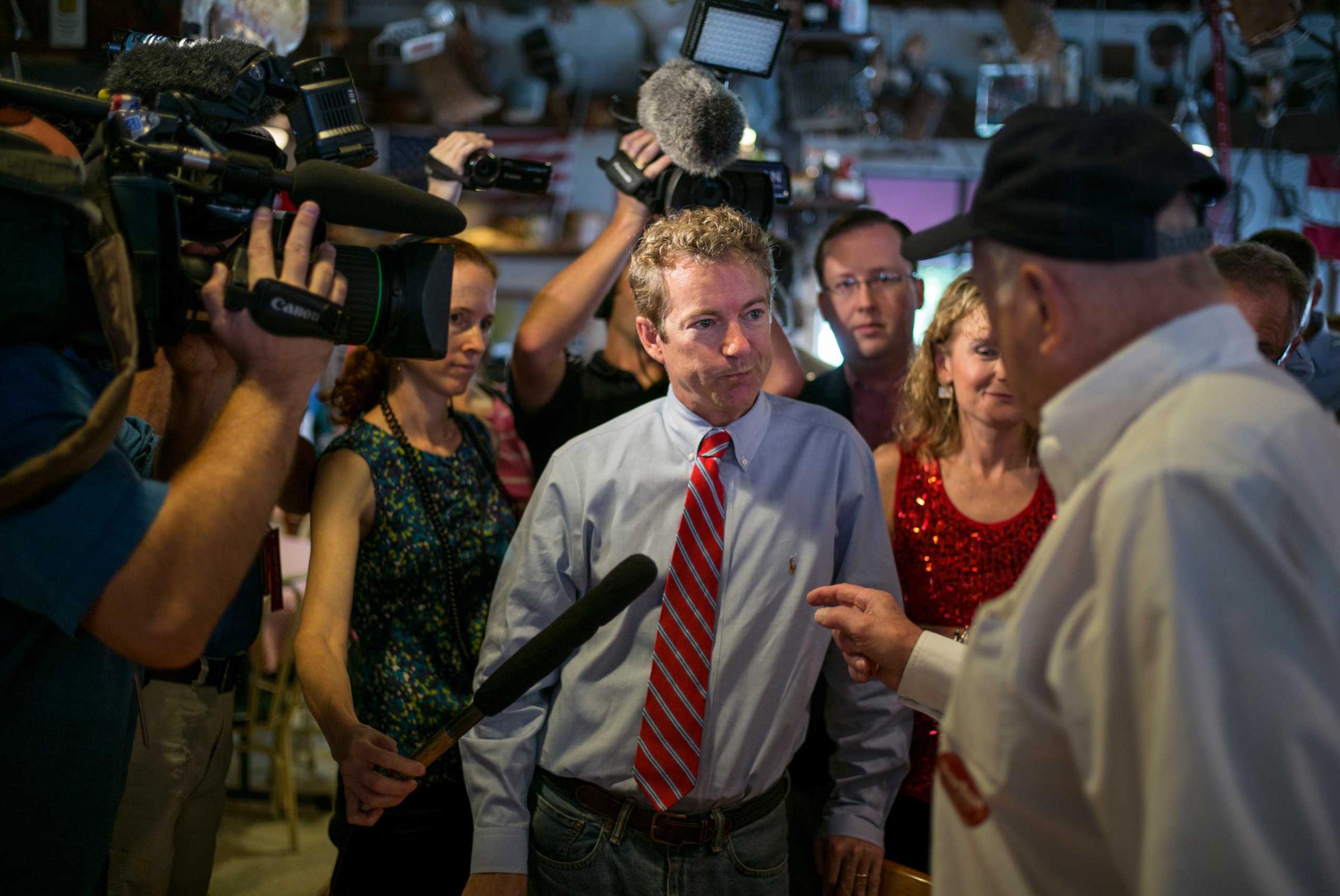
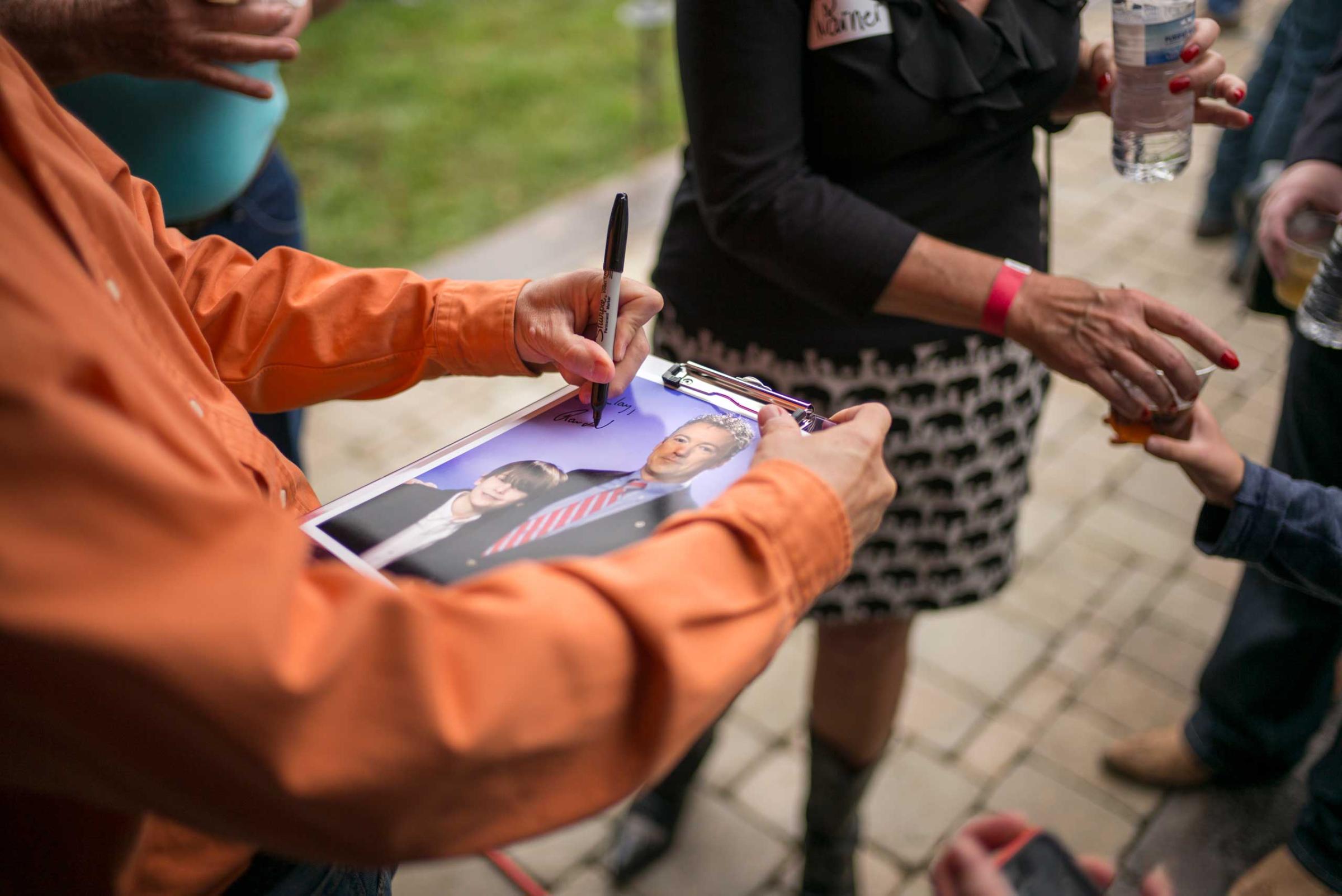
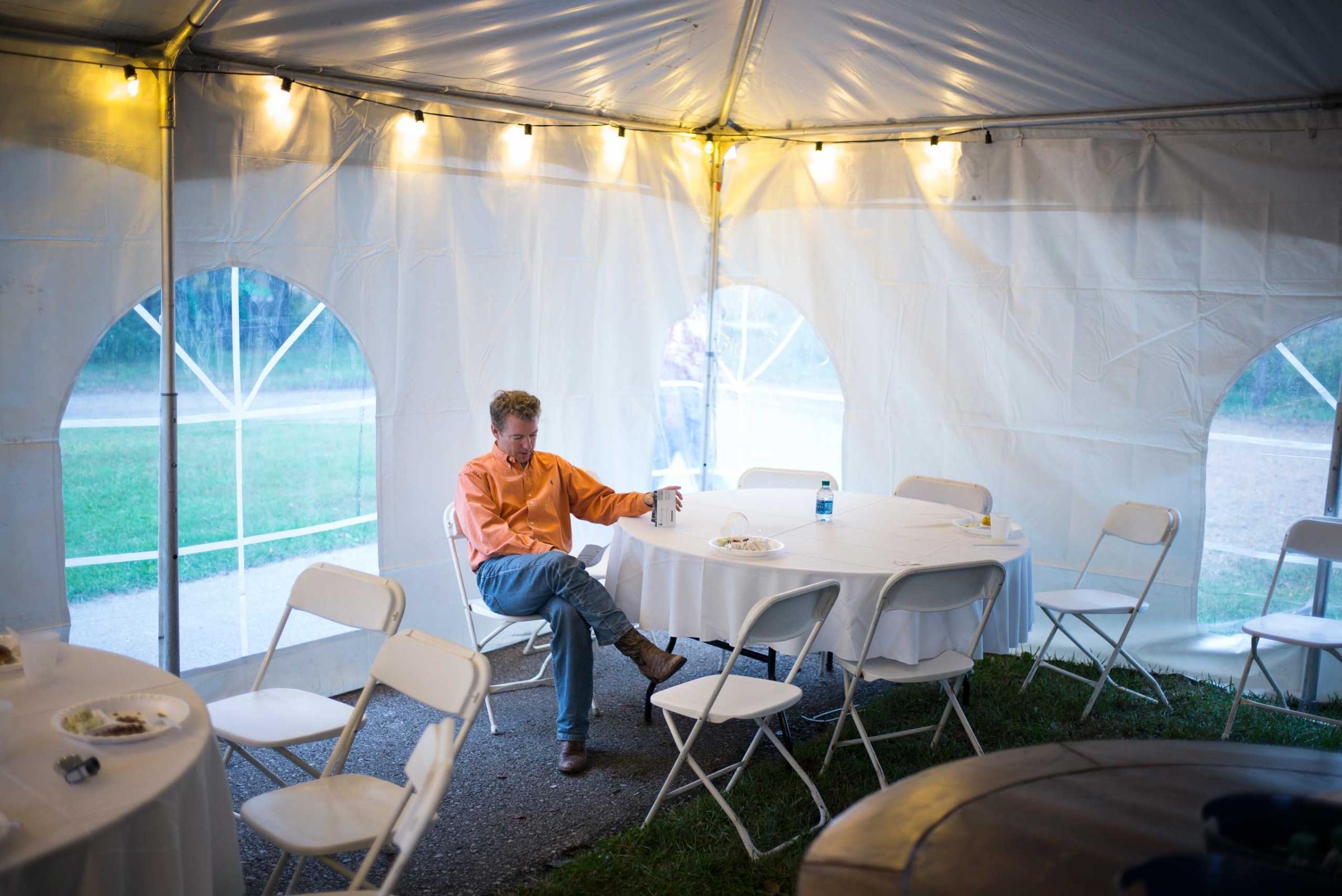
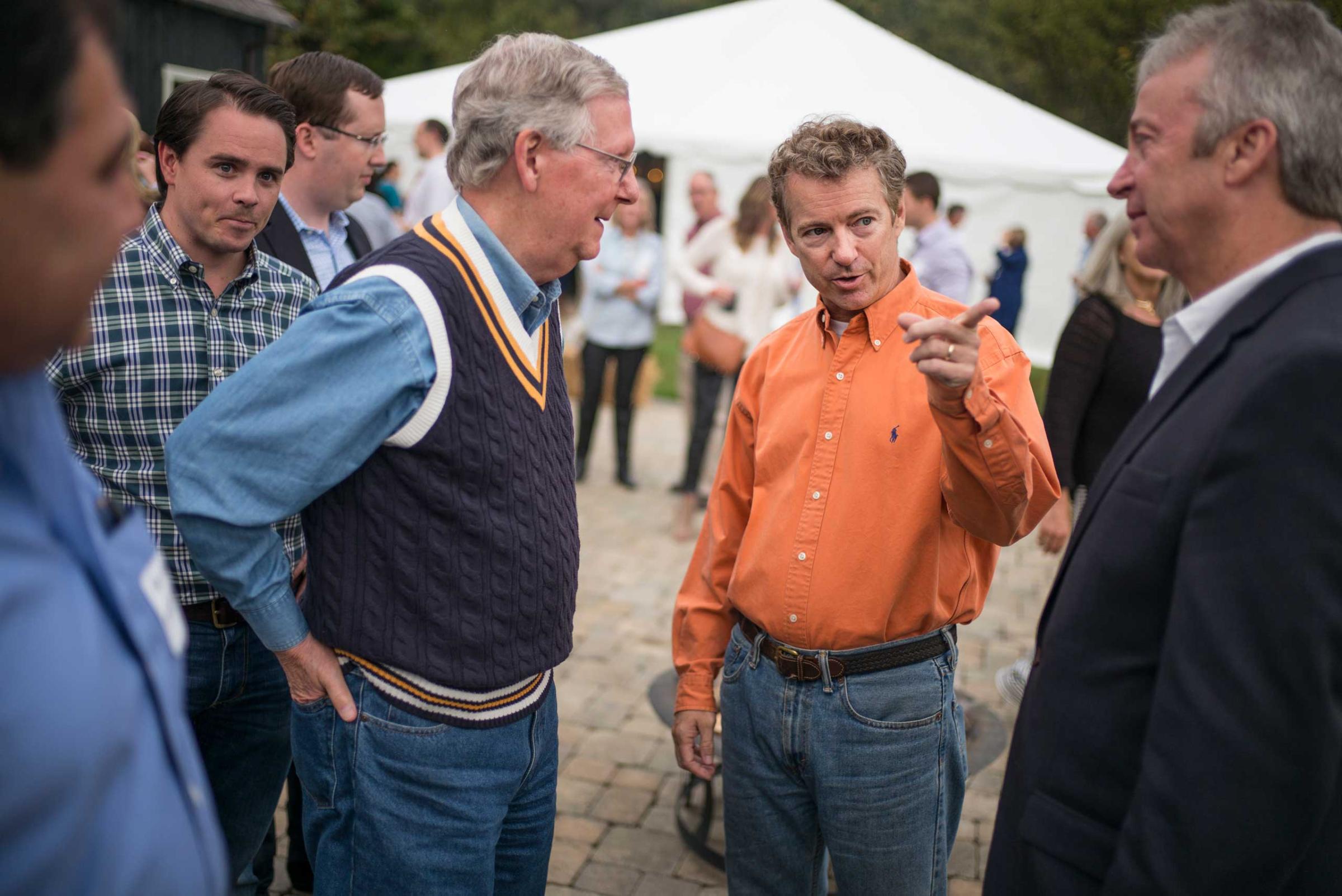
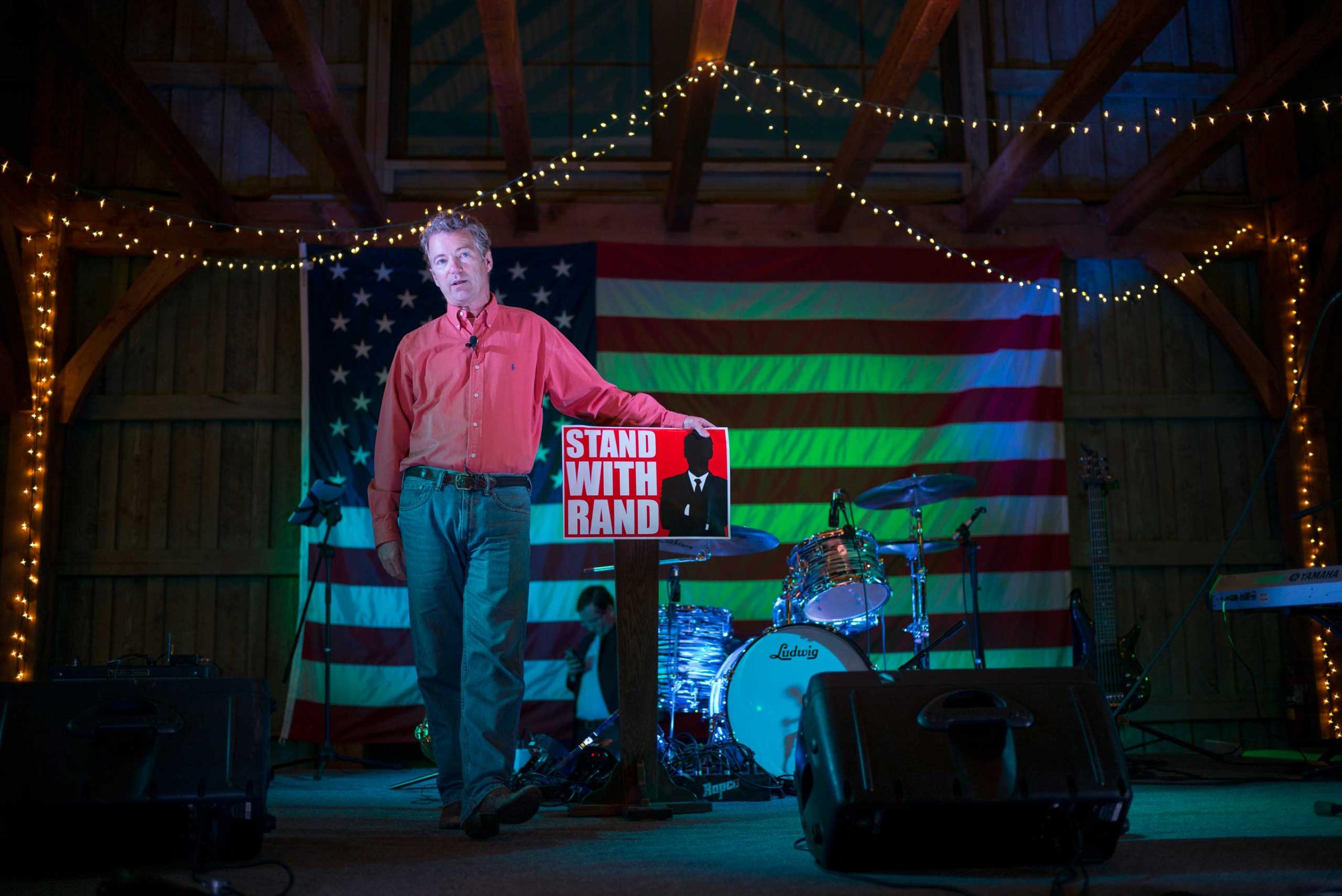
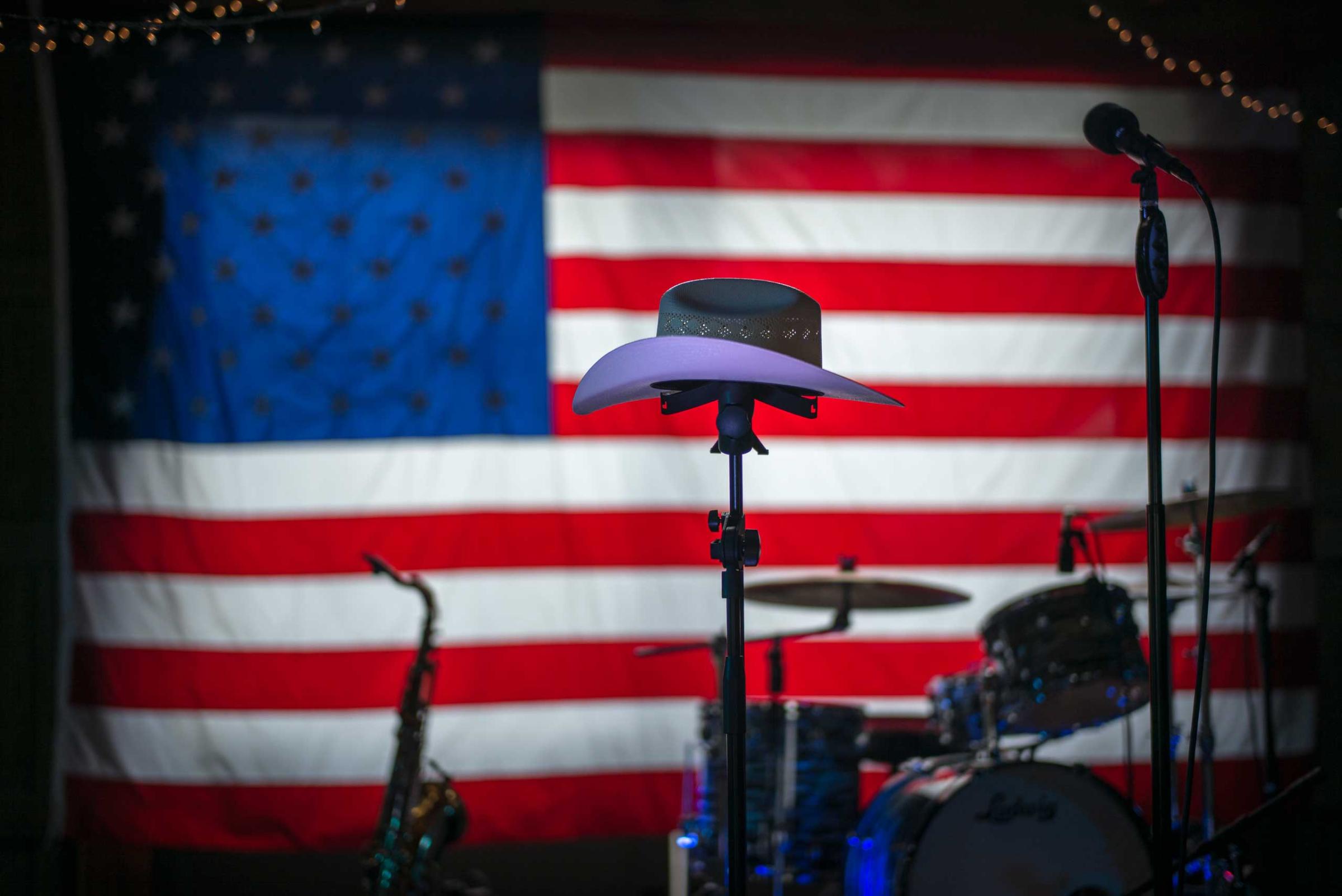
More Must-Reads from TIME
- How Donald Trump Won
- The Best Inventions of 2024
- Why Sleep Is the Key to Living Longer
- Robert Zemeckis Just Wants to Move You
- How to Break 8 Toxic Communication Habits
- Nicola Coughlan Bet on Herself—And Won
- Why Vinegar Is So Good for You
- Meet TIME's Newest Class of Next Generation Leaders
Contact us at letters@time.com